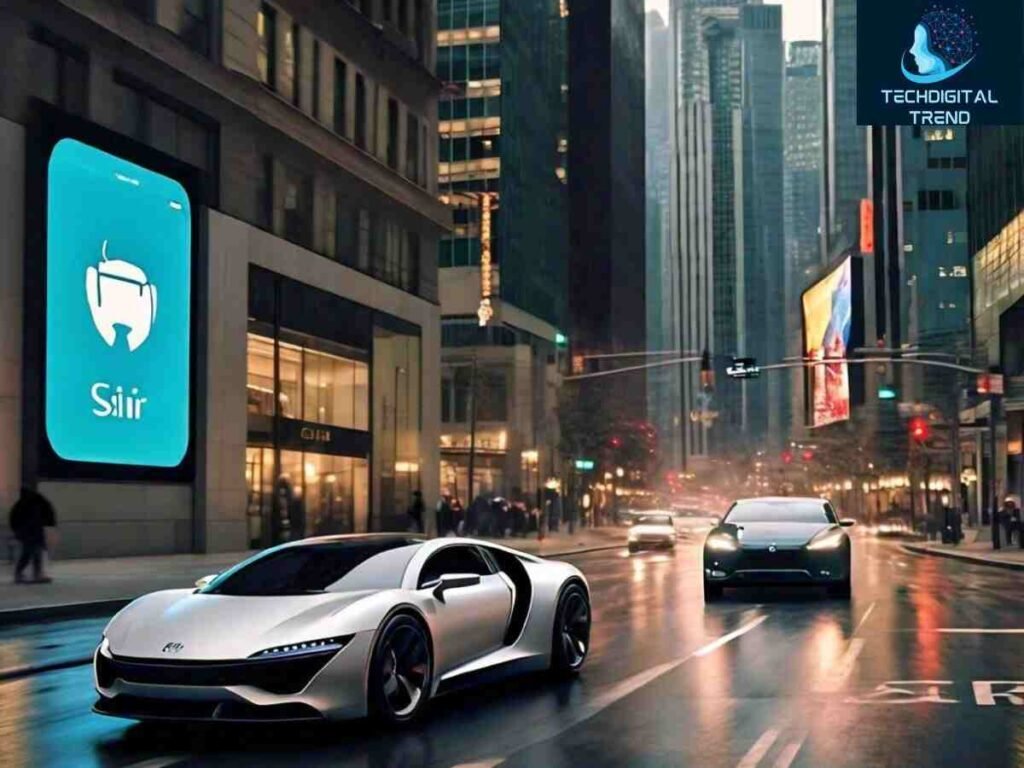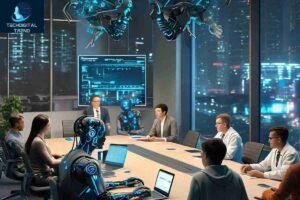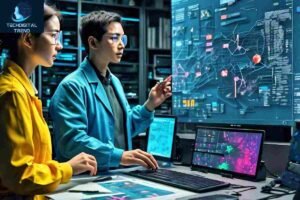Table of Contents
ToggleSelf-Driving Cars
Since the 1950s, when artificial intelligence (AI) first emerged, a lot has happened. From being a mere concept to becoming an integral part of our daily lives, AI has evolved at an unprecedented pace. The journey from the first AI program to the current AI-powered revolution is nothing short of remarkable. The evolution of AI from Siri to self-driving cars has transformed the way we live, work, and interact with technology.
The Early Days of AI (1950s-1980s)
- The Dartmouth Summer Research Project on Artificial Intelligence, led by John McCarthy, Marvin Minsky, Nathaniel Rochester, and Claude Shannon, marked the beginning of AI research in 1956.
- Allen Newell and Herbert Simon created Logical Theorist, the first artificial intelligence software, in 1956.
- In the 1960s and 1970s, AI research focused on developing rule-based systems, which led to the creation of the first expert system, Mycin, in 1976.
- The purpose of mycin is to identify and cure bacterial infections.
- Although AI research slowed down in the 1980s due to limited computing power and funding, it laid the foundation for future breakthroughs.
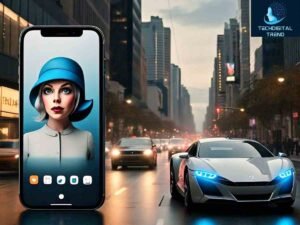
The AI Resurgence (1990s-2000s)
- The 1990s saw a resurgence in AI research, driven by advances in computing power, data storage, and machine learning algorithms.
- This led to the development of AI applications like speech recognition, image processing, and natural language processing.
- In 1997, IBM’s Deep Blue defeated the world chess champion, Garry Kasparov, marking a significant milestone in AI’s capabilities.
- This victory demonstrated AI’s potential to surpass human intelligence in specific domains.
The Rise of Virtual Assistants (2010s)
- The launch of Siri in 2011 revolutionized the way we interact with devices.
- Siri, acquired by Apple in 2010, was the first virtual assistant to gain widespread popularity.
- Google Now (2012) and Microsoft’s Cortana (2014) soon followed, making AI-powered virtual assistants an integral part of our daily lives.
Virtual assistants have transformed how we
- Search for information
- Set reminders and schedule appointments
- Control smart home devices
- Access entertainment and news
AI in Healthcare and Transportation (2010s)
AI’s impact on healthcare has been significant, with applications like:
- Medical imaging analysis
- Drug discovery
- Personalized medicine
- Robot-assisted surgery
- In transportation, AI has enabled:
- Advanced driver assistance systems (ADAS)
- Self-driving cars
- Ride-sharing services
- Traffic management systems
The Age of Deep Learning (2010s)
The resurgence of neural networks, led by researchers like Yann LeCun, Yoshua Bengio, and Geoffrey Hinton, has driven AI’s recent advancements called
The Evolution of AI
Deep learning algorithms have enabled AI to:
Recognize images and speech with unprecedented accuracy
- Learn from large datasets
- Improve natural language processing
AI in Everyday Life (2020s)
AI has become ubiquitous in our daily lives, with applications like:
- Smart home devices
- Personalized product recommendations
- Fraud detection and security systems
- Virtual reality and augmented reality experiences
- AI-powered chatbots have revolutionized customer service and support.
- AI-driven sentiment analysis has enabled businesses to gauge customer opinions and preferences.
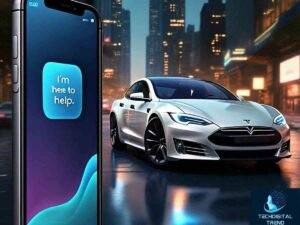
The Future of AI
- From Siri to Self-Driving Cars: Predictive Analytics (Recommendation Systems): AI-powered predictive analytics that can predict user behavior and suggest personalized recommendations.
- From Siri to Self-Driving Cars: Autonomous Vehicles (Self-Driving Cars): AI-powered vehicles that can navigate and drive without human intervention.
- From Siri to Self-Driving Cars: Healthcare (Medical Diagnosis, Drug Discovery): AI-powered healthcare technology that can diagnose diseases and discover new drugs.
- From Siri to Self-Driving Cars: Home Automation (Smart Homes): AI-powered home automation systems that can control lighting, temperature, and security.
- From Siri to Self-Driving Cars: Education (Personalized Learning): AI-powered educational systems that can provide personalized learning experiences for students.
- From Siri to Self-Driving Cars: Customer Service (Chatbots, Virtual Assistants): AI-powered customer service systems that can provide 24/7 support to customers.
As AI continues to evolve, we can expect:
- Increased adoption in industries like education, finance, and agriculture
- Further advancements in natural language processing and computer vision
- Ethical considerations around AI’s impact on society and employment
- AI will continue to transform healthcare, transportation, and education, leading to improved outcomes and efficiency.
- AI-powered robots will become more prevalent in manufacturing, logistics, and services.
Additional Points
- AI has enabled the development of autonomous drones, which have applications in surveillance, delivery, and agriculture.
- AI-powered predictive maintenance has improved efficiency and reduced downtime in industries like manufacturing and energy.
- AI-driven content creation has enabled personalized entertainment and advertising.
- AI has improved accessibility for people with disabilities, with applications like speech-to-text and text-to-speech systems.
Conclusion
the evolution of AI has been a remarkable journey, transforming our lives in ways we never thought possible. From Siri to self-driving cars, AI has come a long way, and its future is brighter than ever.
The evolution of AI from Siri to self-driving cars has transformed the way we live, work, and interact with technology. From virtual assistants to autonomous vehicles, AI has come a long way in revolutionizing various industries and aspects of our lives. With its ability to learn, adapt, and improve, AI is poised to continue shaping the future of humanity. As we embrace this technological advancements, we must also address the ethical and societal implications of AI to ensure that its benefits are equitably distributed and its risks are mitigated. Ultimately, the future of AI holds much promise, and it is up to us to harness its potential to create a better world for all.”
Open this link: tap to here

